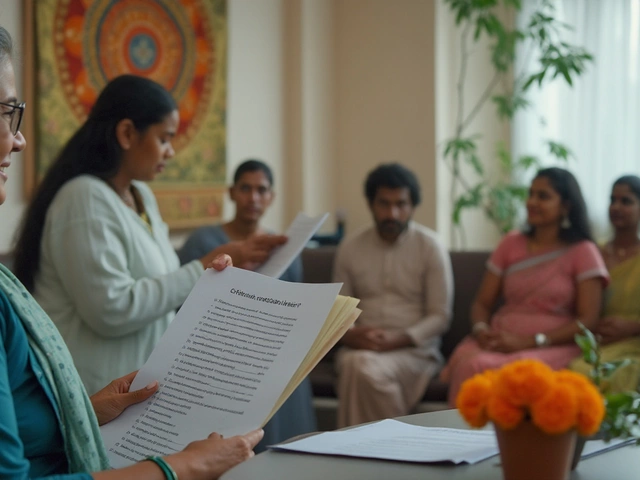
Free stuff always sounds good, right? Complimentary health check-ups pop up everywhere—your workplace, your health insurer, even some banks throw them in. But people are often confused: What do these check-ups actually cover, and do you really benefit from them?
A complimentary health check-up usually means the basic tests are covered at no cost. Think blood sugar, cholesterol, blood pressure, maybe a quick doctor chat. Extra stuff? That’s where you might start paying out-of-pocket. Providers offer these free check-ups to catch health problems early, so you tackle them before they get serious (and expensive).
Here’s the deal—just because the check-up is free, don’t assume it covers everything. You might walk in expecting a full-body scan, but walk out with just a few numbers on a paper. It pays to ask which tests are actually included. Don’t be shy; get a list before booking. If you see a tempting offer, check if there are conditions, like specific days or limited lab tie-ups. That way, you’re not left disappointed—or with a surprise bill.
- What is a Complimentary Health Check-Up?
- What’s Usually Included (and Not Included)
- Perks and Pitfalls to Watch For
- Making the Most of Your Free Check-Up
What is a Complimentary Health Check-Up?
If you’ve ever heard someone talk about scoring a “complimentary health check-up,” they’re usually referring to a health screening you get without paying out of your own pocket. The key word here is complimentary, which basically means 'free'—at least for the main set of things covered.
These check-ups are often offered by employers, health insurance companies, and sometimes even gyms or banks as a way to attract or reward customers. India’s health sector, for instance, has seen a big push for these in recent years, especially with group health insurance plans. In fact, as per a 2023 survey by a major health insurer, nearly 38% of urban employees in India have used at least one complimentary check-up provided by their employer.
So, what makes a complimentary health check-up different from just any check-up package? It’s all about cost—basic tests cost you nothing under the offer. Still, not all tests are included every time. The main goal is to spot problems early, like high cholesterol or diabetes, before they start messing up your daily life.
If you’re wondering why companies hand these out, it’s because preventive care helps them save cash in the long run—nipping small issues before they get big (and expensive). For insurers, healthier customers equal fewer claims. For employers, fewer sick days and healthier staff keep everything running smoother.
Keep in mind, it’s not always as ‘full’ as a full-body check. Usually, the free package is basic—blood pressure, blood sugar, and maybe a cholesterol test or a doctor consultation. If you want anything fancier, like scans or more detailed blood work, you’re probably looking at an upgrade or added charges.
What’s Usually Included (and Not Included)
When you see an offer for a complimentary health check-up, the first big question on your mind should be: What’s part of the deal? You won’t get a full-body MRI or advanced cancer screening, but you will get enough basic info to spot trouble early if you know what to look for.
Here’s what’s included almost everywhere:
- Blood pressure check: Quick and painless, helps spot hidden risks of heart disease.
- Blood sugar (glucose) test: A must for finding early signals of diabetes.
- Cholesterol test: Measures good and bad cholesterol. This matters for your heart health.
- Basic examination by a doctor: A short chat and maybe listening to your heart or lungs.
Some places might throw in extras, especially if they’re trying to win your business:
- Hemoglobin level
- Urine routine (detects infections or kidney issues)
- ECG (if you’re over a certain age or have a heart risk factor)
- BMI calculation (height and weight measurement)
But don’t expect these to be standard. Sometimes you get a “free” eye or dental check-up thrown in, but these are more for show—useful, but rarely deep.
What’s usually not included?
- Thyroid or hormone tests
- Liver and kidney function tests (unless there’s a special promo)
- Vitamins (like D and B12) or advanced screenings
- X-rays, ultrasounds, or scans
- Detailed counseling or multiple specialist consults
One eye-opener: If you want to add extra tests, you typically pay at the regular rate, or sometimes a discounted “add-on” rate. If you’re curious how much is actually covered, check the small print or call ahead. Don’t assume you’re getting thousands of rupees worth of testing for free—usually the package value sits between ₹500 and ₹1500, depending on the provider.
Here’s a quick look:
| Test/Service | Included in Complimentary Check-Up? |
|---|---|
| Blood Pressure | Yes |
| Blood Sugar | Yes |
| Cholesterol | Usually |
| BMI | Sometimes |
| ECG | Sometimes (age/risk-based) |
| Thyroid Function | No |
| Vitamin D/B12 | No |
| X-ray/Ultrasound | No |
| Urine Routine | Sometimes |
If someone says the check-up is free, but you end up paying for half the tests you wanted, it’s normal. Just know what’s on the table so you can actually use the freebie the right way.

Perks and Pitfalls to Watch For
On the surface, a complimentary health check-up sounds like a win. You get valuable health info without spending a rupee—what’s not to like? But it’s not always so simple. There are some solid perks, for sure, but a couple of pitfalls people keep stumbling into.
Let’s look at the perks first. These free check-ups are a great way to spot silent health problems—like high cholesterol or borderline diabetes—before they turn ugly. According to the Indian Heart Journal, almost 45% of adults who went through free check-up camps discovered risk factors for heart disease they didn't know about. That’s a big heads-up, and it can help you make changes before things get serious.
- Often includes key basics like blood pressure, sugar, CBC, and maybe a few more tests.
- Can lead to early treatment and save you money in the long run.
- Some plans even add in doctor consultations or quick lifestyle advice free of charge.
- Workplaces that offer these programs often have higher overall employee well-being and productivity.
But watch out for the pitfalls. Free check-ups can be limited—sometimes offering only the bare minimum tests. You might get there expecting a full cardiac screening, but leave with just a generic report. Worse, there’s an upsell angle. Some labs use these free check-ups to pull you in, then push expensive ‘add-on’ tests or unnecessary follow-ups. Also, if the results aren’t reviewed by an actual doctor, it can be confusing. One recent study found over 30% of participants walked away with little idea what to do next.
- Hidden charges: Make sure follow-up tests or reports didn’t sneak onto your bill.
- No personalized explanation: Some places just email results without any expert interpretation.
- Quality varies: Not every free check-up uses reliable labs or experienced staff.
- One size doesn’t fit all: Standard test panels might skip what you really need, based on age or health history.
What do experts say? Dr. Rahul Verma, a popular preventive health specialist, put it bluntly:
"Free check-ups can open doors for early diagnosis, but only if people know what the tests actually mean and what steps to take next. Otherwise, it's just numbers on a printout."
To give you an idea of what’s usually in (and out), check this quick table:
| Test/Service | Usually Included? |
|---|---|
| Blood Pressure | Yes |
| Fasting Blood Sugar | Yes |
| Basic Lipid Profile | Sometimes |
| Liver or Kidney Function | Rarely |
| Doctor Consultation | Varies |
| Thyroid Panel | Rarely |
| Personalized Advice | No |
The smart move? Use your freebie, but don’t assume it covers everything important to your health. Always check the details upfront and get a doctor to walk through your results. That’s how you turn a complimentary health check from a marketing gimmick into an actual health boost.
Making the Most of Your Free Check-Up
So, you’ve scored a complimentary health check-up. Don’t just show up and wing it—there’s a smart way to use these freebies. The main win with these check-ups is catching issues early, way before they turn into something big. Around 60% of chronic diseases like diabetes and high blood pressure can be managed better just with early detection, according to the World Health Organization.
Here’s how to actually get value out of your check-up:
- Confirm what’s included: Get the list of specific tests you’ll receive. Most include basics like fasting blood sugar, cholesterol, urine routine, and an ECG if you’re lucky. Some skip important stuff, so always ask ahead.
- Follow the fasting instructions: For most blood tests, you’ll need to fast for 8-12 hours—otherwise, your numbers can be off. If you’re not sure, call and check. Don’t risk getting test results that mean nothing.
- Take notes and bring your questions: Write down recent symptoms, family health history, or concerns. At the check-up, ask the doc about anything unusual you’ve noticed, even if it feels minor.
- Don’t ignore your results: Take a photo or ask for a copy. Some places just hand you raw numbers with no explanation. If the staff seems rushed, ask directly what your results mean. If something’s off, get a proper doctor’s appointment after.
- Check if follow-ups are covered: Some packages only give you the tests, not a real discussion with a doctor. See if a doctor consult is free, or if you’ll pay for that separately.
And here’s something people always forget—sometimes these free check-ups are used as a pitch for extra paid tests. Don’t sign up for extras right away unless you really need them or your basic results suggest it.
| Test | Why It Matters | Included? |
|---|---|---|
| Fasting Blood Sugar | Screens for diabetes | Yes, almost always |
| Total Cholesterol | Checks heart health risk | Yes, often |
| Urine Routine | Kidney health, infections | Sometimes |
| ECG | Spotting heart problems | Occasionally |
| Liver/Kidney Function Tests | Detects organ issues | Rarely |
The trick is to stay active in your own health. A free check-up is a tool, not an answer. Use it to spark better conversations with doctors, track changes in your body, or motivate healthy habits. And always, always read the fine print before you walk in.





Rohan Talvani
I am a manufacturing expert with over 15 years of experience in streamlining production processes and enhancing operational efficiency. My work often takes me into the technical nitty-gritty of production, but I have a keen interest in writing about medicine in India—an intersection of tradition and modern practices that captivates me. I strive to incorporate innovative approaches in everything I do, whether in my professional role or as an author. My passion for writing about health topics stems from a strong belief in knowledge sharing and its potential to bring about positive changes.
view all postsWrite a comment